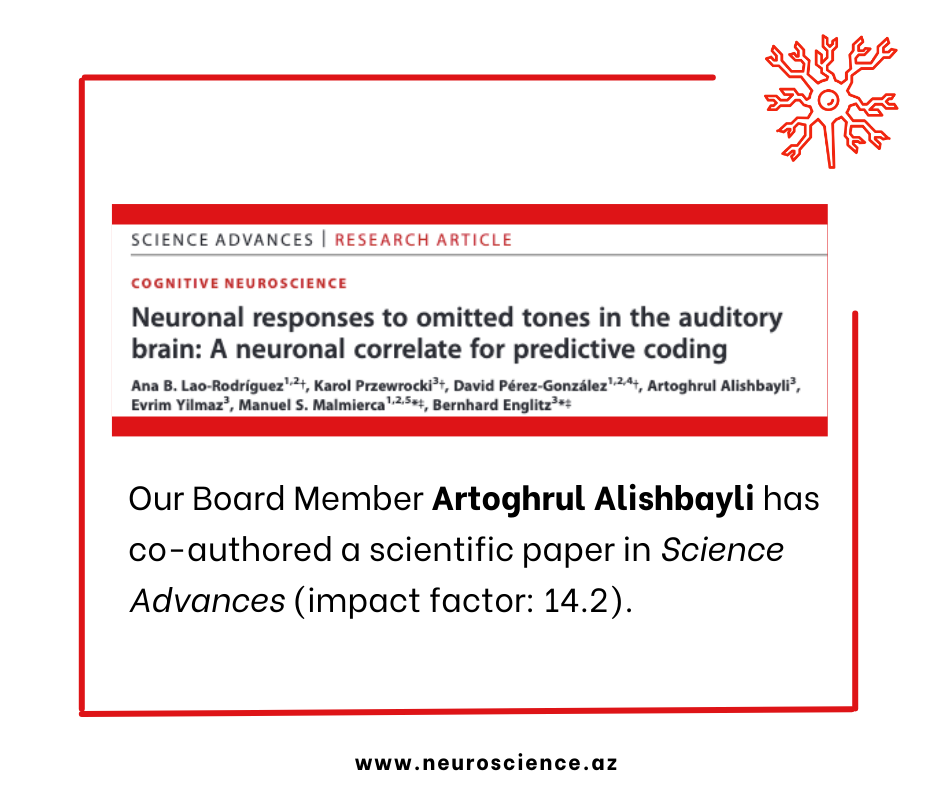
A new study published in Science Advances presents experimental evidence corroborating the predictive processing hypothesis, which posits that the brain constantly models its environment and predicts its future states, instead of passively taking in information from outside in a unidirectional manner. Although this hypothesis has been backed by a wealth of human experiments using behavioral and neuroimaging methods, evidence from neural recordings has been scant.
The new study carried out as a collaboration between a group at the University of Salamanca and a group at Radboud University Nijmegen fills this empirical gap with experiments on awake and anesthetized animals. Recording single cells from the auditory regions of the brain, researchers demonstrated the existence of a group of neurons reliably responding to the violation of predictions made by the brain – a critical experimental prediction of the predictive processing hypothesis. One of our members, Artoghrul Alishbayli, contributed to this study by performing critical awake and anesthetized mouse experiments as a part of the group at Radboud University Nijmegen. Artoghrul is now finishing his doctoral research where he studied various aspects of sound processing in the auditory cortex using animal and human experiments.
Link: https://www.science.org/doi/full/10.1126/sciadv.abq8657
Citation: Lao-Rodríguez, A. B., Przewrocki, K., Pérez-González, D., Alishbayli, A., Yilmaz, E., Malmierca, M. S., & Englitz, B. (2023). Neuronal responses to omitted tones in the auditory brain: A neuronal correlate for predictive coding. Science Advances, 9(24), eabq8657.